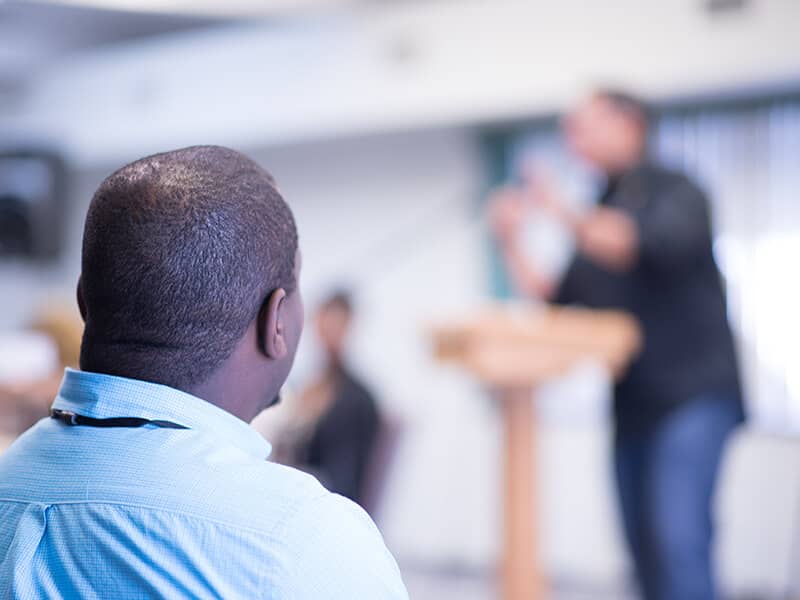People were clearly energized and excited by their new Methodist president and his unapologetic testimony to the role his Christian faith plays in his life. Based on comments and conversations overheard among attendees, President Bush's inaugural address, suffused with religious themes, resonated deeply with many people and further heightened their expectation.
Meanwhile, officials were taken aback by the demand for tickets to the event. This year's prayer breakfast was attended by approximately 4,900 people, up from 3,200 last year. Two auxiliary ballrooms were needed to handle the crowd, which included officials from 170 nations as well as numerous members of Congress and the executive branch of the government.
And the faithful were not disappointed. Both Democrat and Republican members of Congress briefly testified to the tremendous solace they received from attending weekly prayer breakfasts held in the Senate and the House of Representatives. I suspect most Americans, whatever their faith convictions, would be encouraged to hear our nation's leaders describe the impact these weekly gatherings have had on their lives.
Deeply religious Americans believe that they now finally have a president who actually feels "our" pain--the pain of being discriminated against, caricatured, and mocked by social, cultural, and media elites, who, as Stephen Carter argues in "The Culture of Disbelief," relentlessly seek to marginalize and segregate Americans' religious faith from society and the nation's public policy.
Sen. Bill Frist, R-TN, a heart-transplant surgeon before he entered the Senate, spoke movingly at the breakfast of the role faith has played in his medical and public service careers. He concluded with a humbling story of his medical missions work with Samaritan's Purse in Sudan. He recalled an encounter with a Sudanese Christian who had lost his family and part of his arm and leg to the barbarous war being waged against him and his fellow Christians by the Sudanese government.
Then Frist quoted President Bush's inaugural address: "America's faith in freedom...is a seed upon the wind, taking root in many nations...an ideal we carry, but do not own, a trust we bear and pass along."
As inspired as the crowd was by Senator Frist, there was a palpable sense of excitement in the room as President Bush was introduced. Bush noted that each of his predecessors since President Eisenhower has addressed the prayer breakfast.
While President Bush made it clear that America is a nation for people of all faiths, as well as people of no faith, religious faith is a deep resource for good in our society. The audience enthusiastically greeted these words: "Our country from its beginnings has recognized the contribution of faith. We do not impose any religion; we welcome all religions. We do not prescribe any prayer; we welcome all prayer. This is the tradition of our nation and it will be the standard of my administration."
President Bush inspired the audience with his fervent endorsement of the role that our nation's religious faiths have played in ennobling our lives and our nation. However, the loudest and most sustained response to the president--a spontaneous and rolling standing ovation that the president had to call to an end--greeted these words concerning community and faith-based charities:
"My administration will put the federal government squarely on the side of America's armies of compassion. Our plan will not favor religious institutions over nonreligious institutions. As president, I'm interested in what is constitutional, and I'm interested in what works. The days of discriminating against religious institutions simply because they are religious must come to an end." Why such an overwhelming response and outpouring of emotion to these words even from some in the religious community who have reservations about government assistance to faith-based ministries? In the wake of the fearful and ignorant rhetoric about John Ashcroft's Pentecostal faith, the president's message that religious people are part of the armies of compassion, that we have a contribution to make, is a welcome one. A president who feels our pain and affirms our positive contributions to society is a powerful antidote to elites' corrosive ridicule of our most cherished values.

